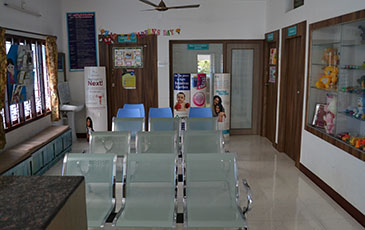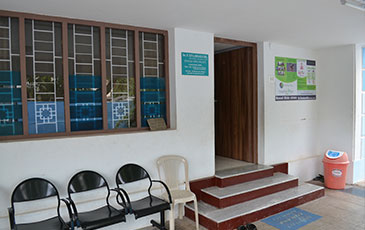What is Asthma?
Introduction: In developing countries like India babies less then 1 year of age experience on an average 5-6 episodes of diarrhea / year and in children above 1 year of age experience about 2-3 episodes of diarrhea /year.
Diarrhea is the passage of loose, watery stools that occur more frequently than the usual (about 3-4 times in a day). Diarrhea in children is usually caused by infection (bacteria, viruses or parasites) through contaminated food or drinking water. The most common complication of acute diarrhea is dehydration, which can be prevented easily if treatment is started early. Severe diarrhea can lead to significant fluid loss and may be life threatening if not treated properly.
- TYPES: There are there types of diarrhea,
- Acute watery diarrhea- - Loose or watery stools (lasting for several hours to days)
- Acute bloody diarrhea (dysentery) - bloody stools lasting less than 14 days
- Persistent diarrhea - Loose, watery or bloody stools lasting more than 14 days.
Causes for Diarrhea
The most common cause of diarrhea is infection including bacterial, viral, and parasitic organisms. Among these the most common ones in India are Rotavirus (virus) and E. coli (bacterial) infections.
- Prevention of Diarrhea,
- Educate yourself and your child (If old enough) about how infections spread
- Maintain good sanitation and personal hygiene
- Use only safe drinking water (Boiling water for 1 minute and allow it to cool is one of the best methods for making water safe to drink)
- Wash the hands after using restroom and before handling food.
- Vaccinate your baby with Rotavirus vaccine if available
Signs of Dehydration: Children get dehydrated (less water in the body) when the fluid lost in vomiting and diarrhea are not replaced.
Mild dehydration - Slightly dry mouth, increased thirst and decreased urine output
Moderate dehydration - a. Thirst | b. Irritable and restless | c. Decreased skin elasticity | d. Sunken eyes
3. Severe dehydration: a. Above signs plus diminished consciousness, cool and moist extremities, feeble pulse and low BP.
Treatment for Diarrhea:
Replacing the fluid: For mild or moderate dehydration, oral rehydration salts solution (ORS) can be used to replace the lost fluid and also the ongoing loss. ORS packets are easily available and are very safe to give, as long as it is mixed with water in right proportions. ORS is absorbed in the gut and it replaces the water and electrolytes, which is lost in the stool.
How much ORS to give?
If there is moderate or severe dehydration start giving ORS and take to the doctor immediately.
Mild dehydration:
- <10 kg body wt: 60-120 ml ORS foreach diarrheal stool or vomiting
- 10 kg body wt: 120-240ml ORS for each diarrheal stool or vomiting
- Severe dehydration: IV fluids till the child regain consciousness and the circulation improves
- Nutritious food: Continue breastfeeding or resume age appropriate food after replacing the lost fluid
- Zinc Supplements: Giving Zinc supplements have shown to reduce the duration of diarrheal episodes and volume of the stool.
- Probiotics: These are healthy bacteria that might help competitively replace the bad once in the gut. They help to reduce the duration of diarrhea.





